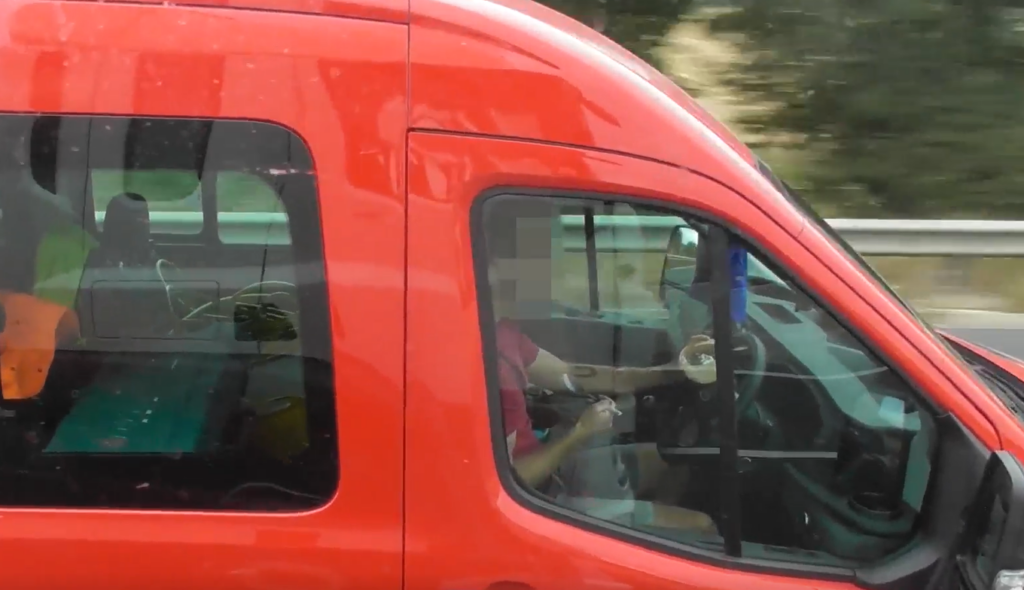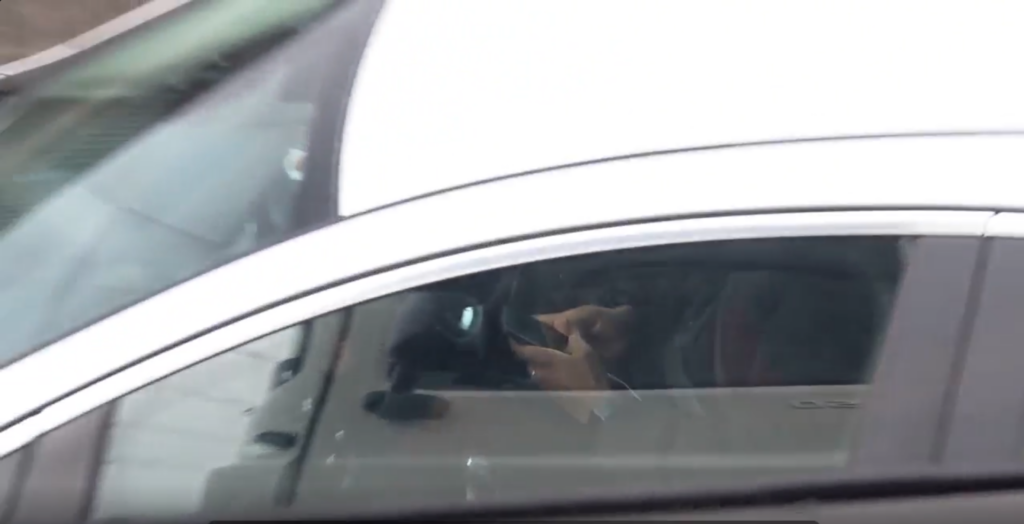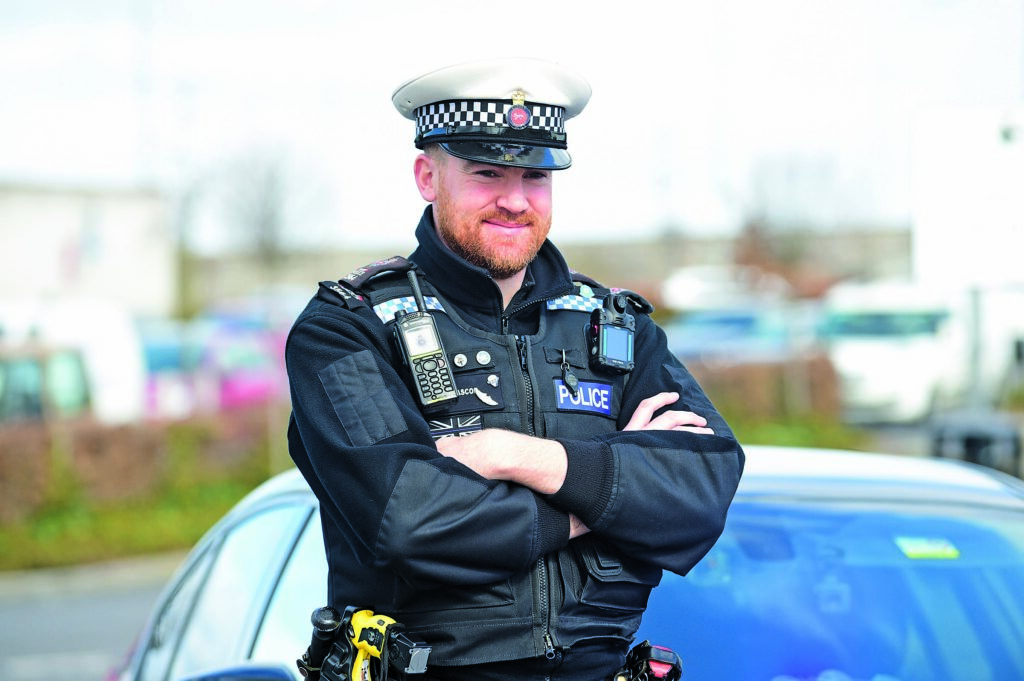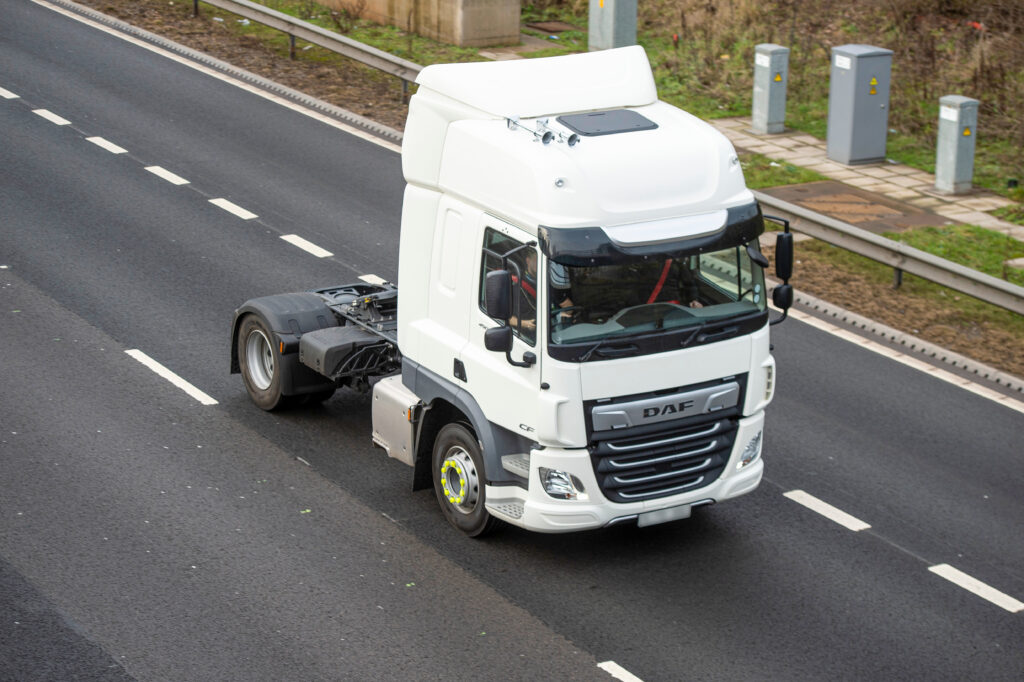FIRE Magazine
Blue Sky Offices Shoreham
25 Cecil Pashley Way
Shoreham-by-Sea
West Sussex
BN43 5FF
Ten years ago, National Highways’ first unmarked HGV cab went out on patrol with the police in an innovative trial to find new ways to deter unsafe driving – Operation Tramline was born.
Since that day, more than 51,500 offences have been recorded by officers from 35 different police forces patrolling across the country in an Operation Tramline cab.
To mark the safety campaign’s 10th anniversary, National Highways has released 10 shocking incidents captured by officers using the cabs.

Caption: This driver eating his breakfast is one of 10 incidents captured in footage here
Some 13,000 hours have been racked up by police since officers from the Surrey force took out the first HGV in 2015. There are now three unmarked HGVs available to police partners who can take advantage of the elevated position to see into cars and vans or across into lorries.
Some of the offences witnessed in Operation Tramline have included:
Meanwhile new footage released today reveals three drivers spotted without their hands on the wheel and using their mobile phones when Surrey Police patrolled in the National Highways HGV cab last month, 10 years after their first outing.

Caption: One of the drivers seen using their phones at the wheel recently in Surrey. Watch the video here
The most common offences recorded over the last decade are not wearing a seatbelt (14,861) and using a mobile phone (13,553). Together these offences make up over half (54%) of the total number of offences recorded by police between 2015 and 2024.
National Highways Director of Road Safety, Sheena Hague, said: “We know that driver distraction, such as using a mobile phone, and not wearing a seatbelt are key factors in collisions which result in people being seriously injured or killed on our roads.
“Our goal through Operation Tramline has always been to remind motorists to think carefully about their driving behaviours behind the wheel. The choices people make can have such a devastating and far reaching impact on people’s lives.
“It is disappointing that there are still a minority of people who continue to put themselves and others at risk and we will continue working with the police through Operation Tramline and other campaigns to deter unsafe driving.”
Future of Roads Minister, Lilian Greenwood said: “Dangerous driving puts everyone on our roads in danger, and Operation Tramline plays a vital role in tackling this issue.
“While our roads are among the safest in the world, we are committed to improving road safety, and our recent Click! THINK! Campaign, which specifically targets young men, reminds drivers and passengers to wear their seatbelts at all times.”
One of the first officers to ever go out in the Operation Tramline HGV in March 2015 was Sgt Dan Pascoe. At the time just a young PC, he is now in charge of the operation for Surrey Police and Sussex Police.

Caption: Sgt Dan Pascoe
He recalls: “I was working in the roads policing team and volunteered to go out in the Operation Tramline HGV, I have been involved ever since.
“The truck gives us an invaluable observation point. Vehicles have been getting progressively higher over the years, but this cab is a golden ticket enabling us to see over into pretty much every vehicle.”
The initial focus of the campaign was spotting people on their phones although forces look for all offences now. Sgt Pascoe believes the campaign has helped reduce the number of people using their mobile phones.
He said: “We have definitely seen a significant tail-off. We may never have a zero month unfortunately, but the message is certainly getting through.
“Drivers of cars, vans and pick-ups are where the numbers are highest. It’s not as high as it used to be but we haven’t got to the point yet where it is seen as socially unacceptable.”
Dan, who works in the Vanguard Road Safety Team for Surrey Police, said: “I believe we are making a difference with Operation Tramline. How do you measure how many collisions you have prevented? We can’t. But you are four more times more likely to die in a crash if you are on your phone, so for every 100 distracted drivers we have stopped we could have prevented 25 collisions.”
Chief Constable Jo Shiner, the National Police Chiefs’ Council lead for roads policing, said:
“Driving while distracted is incredibly dangerous and selfish, putting many lives at risk and as the statistics show, it can all too often end in tragedy. Proactive work to tackle this and the other fatal 4 driving behaviours is vitally important in improving the safety of our roads, as well as educating road users to think twice about their actions.
“The results from Operation Tramline speak for themselves in showing just how valuable it is and how the perspective from the truck cab enhances officers’ view of the road.
“It also shows great partnership working which is absolutely key to making our roads safer for everyone.”

Statistics around the use of mobile phones at the wheel and not wearing a seatbelt highlight why safety campaigns such as Operation Tramline are needed. DfT road casualty statistics show that, based on data for 2018 to 2022, 24% of car occupant fatalities were not wearing a seatbelt.
Motorists are also four times more like to be in a crash if using a mobile phone while driving.

